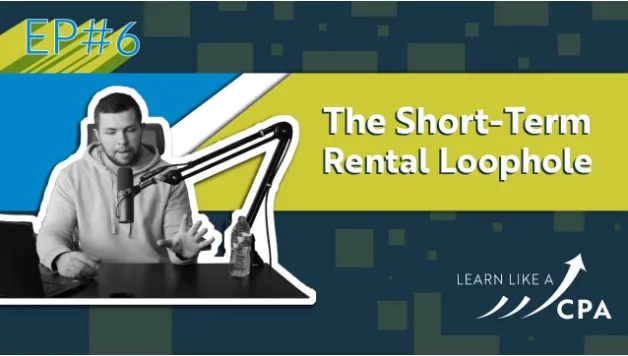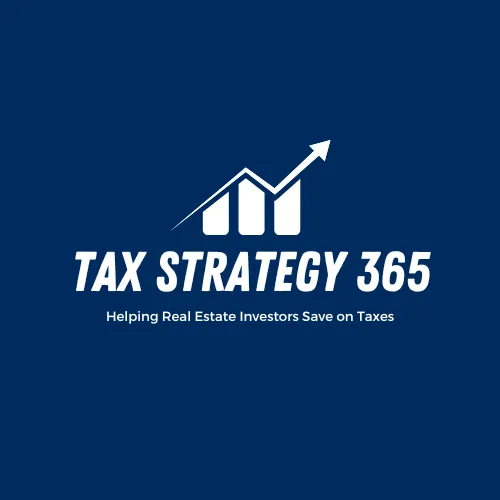Latest blogs and articles
Leading you to a better financial future.

The Short-Term Rental Loophole
The Short-Term Rental Loophole
There was once a day when all income was grouped into one bucket. This was great for high-income individuals, because they could buy rental property or other passive investments, take losses (on paper), and use these losses to offset their active income. But in 1986, Congress overhauled the tax code, creating two separate buckets of income:
Non-passive income, which comes from your W-2 job, a 1099, business income that you actively participate in, etc
AND
Passive income, which comes from stock dividends, real estate, businesses you’re not actively participating in, etc
With this new tax structure, it was no longer possible to offset active income with passive losses (in most cases).
Here are two ways to use real estate to lower your taxes:
Become a 'Real Estate Professional': This lets you deduct real estate losses from your regular job income. But there's a catch - you must spend most of your time in a real estate business. If you already work in real estate, it's easy. But if you have another full-time job, it's tough to meet the time requirement.
Invest in short-term rentals like Airbnb: If guests stay for a week or less, you can use rental losses to reduce your taxes without needing 'Real Estate Professional' status. You just need to be actively involved in managing the property, like doing cleaning or communicating with guests. Just don't leave everything to a management company."
There’s two options for the hour requirements:
Option A: You need to spend at least 100 hours working on your property, and you must work more on it than anyone else you hire. So, if you put in 110 hours, and your cleaner and landscaper combined put in 140 hours, you're fine because you worked the most.
Option B: You simply need to spend 500 hours on your property. It's easier because you don't have to track anyone else's time.
All that being said, you should start to see why short-term rentals are such a great investment opportunity. For those of us who don’t work in real estate full time, it’s a way to invest in properties, get that cash-flow, and offset our normal, non-passive income.
**As always, be sure to talk to your CPA or financial advisor before making any moves. My advice isn’t a one-size-fits-all solution, so make sure you find a strategy that fits your specific financial situation.
The Short-Term Rental Loophole
Join my Facebook group with over 9,000 real estate investors!

Choose Your Journey to Tax Excellence
Journey 1
Building a Tax Advisory & Consulting Practice
Scale, streamline, and systemize your advisory business.
Turn compliance clients into year-round advisory opportunities while mastering operational efficiencies for sustainable growth. This track covers pricing, hiring, marketing, and client engagement essentials to help you build a practice you love.
WHAT YOU’LL LEARN:
Crafting solid engagement letters and pricing models.
Transforming compliance clients into year-round
partners.
Marketing
strategies that drive consistent growth.
Recruiting and training the right team to scale your business.
Bonus:A Power Checklist for the ultimate year-end tax planning session.
Journey 2
Tax and Legal Foundations: Core Strategies for All Levels
Master the fundamentals that drive financial success.
Perfect for business owners and advisors, this track delivers essential insights on asset protection, tax planning, estate strategies, and IRS compliance.
WHAT YOU’LL LEARN:
Unlock estate planning with Revocable Living Trusts.
Maximize retirement savings through Solo 401(k) plans.
Real estate strategies: Short-term, long-term, and self-rentals.
Learn asset protection that actually works.
Navigate IRS resolution with confidence and ease.
Journey 3
Advanced Insights: Unlock Complex Tax Strategies
Top-tier strategies for high-value clients.
Designed for experienced professionals, this track offers in-depth guidance on prime tax strategies, entity structuring, and payroll solutions. Gain the insights needed to handle complex business scenarios with confidence.
WHAT YOU’LL LEARN:
Report multi-entity structures with Forms 1065 & 1120S.
Maximize tax savings using Bonus Depreciation & Section 179.
Seamlessly relocate clients to tax-free states.
Navigate business sales and acquisitions smoothly.
Use 105 Plans to save clients on healthcare costs.

2024 Learn Like A CPA. All rights reserved.